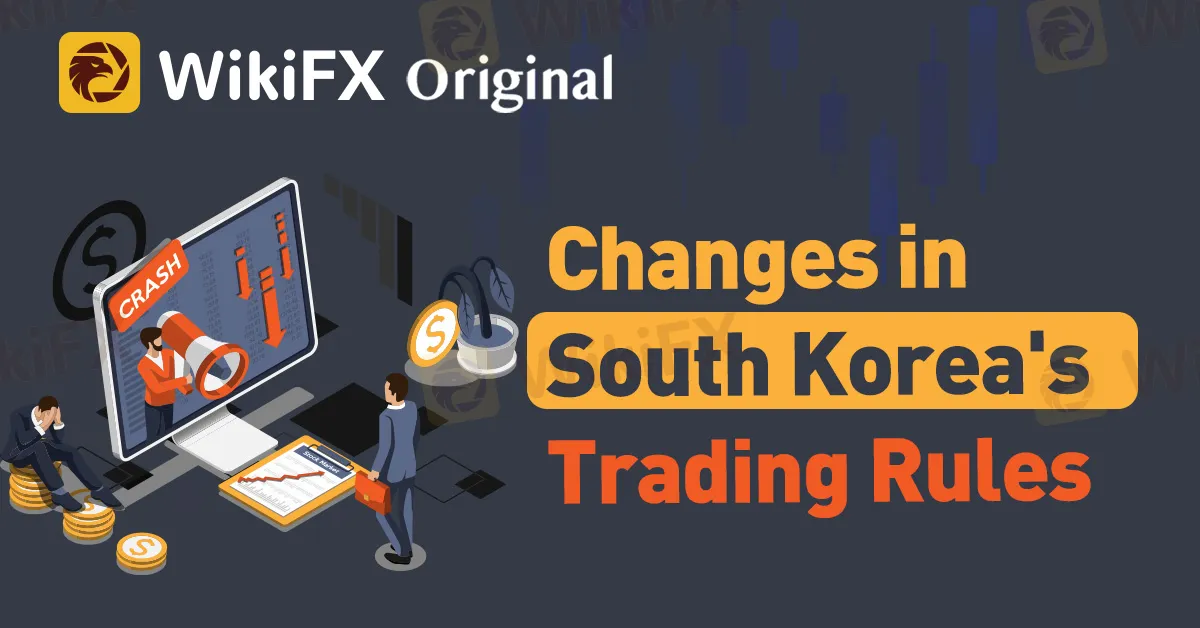Changes in South Korea's Trading Rules
Abstract:South Korean financial market regulators are implementing stringent regulations on contracts for differences (CFDs) trading to enhance transparency, prevent market manipulations, and address recent incidents of losses and volatility in the market, aiming to restore trust and protect investors.

South Korean financial market regulators are set to introduce comprehensive regulations for contracts for differences (CFDs) trading to ensure transparency and prevent market manipulations, according to reports from various local news outlets. The official announcement comes after eight South Korean stocks experienced continuous declines for nearly a week due to the effects of CFDs trading, resulting in losses exceeding 100 billion won ($77 million) as CFDs accounts were liquidated. The Financial Services Commission (FSC), the Financial Supervisory Service (FSS), Korea Exchange, and the Korea Financial Investment Association have jointly unveiled these measures.
In the current regulatory framework, retail investors are categorized as either institutions if their transactions are processed by a local broker, or foreign investors if handled by a foreign broker, leading to confusion regarding the origin of investments. To address this, Kim So-young, Vice Chairman of the FSC, stated that the financial authorities will revamp CFD trading regulations, aiming to provide investors with accurate information about transactions, including the identification of real investors involved and the level of associated liquidation risks. This transparency will enable investors to make informed and prudent investment decisions.

The South Korean authorities also aim to raise the standards for qualifying as a professional investor, making the criteria more stringent. Additionally, brokers will be required to verify the qualification of professional investors every two years. Furthermore, new regulations will mandate face-to-face authentication for opening CFDs accounts, replacing the previous online authentication method without in-person verification.
Meanwhile, the regulators have recommended temporarily restricting CFDs trading and account opening in the country until the new regulations come into effect. Many local brokers have already halted customers from opening new accounts since the end of April, following the controversy surrounding CFDs trading. The FSS conducted inspections on several CFDs brokers, uncovering cases where accounts were opened without proper identification verification and brokers engaged in misleading advertisements for risky investment instruments. The investigation by the FSS is ongoing, including an examination of a brokerage executive, with plans to expand the scope if necessary.
Kim emphasized that recent unfair transactions have damaged trust in the capital market and dampened investment sentiment. The government and relevant institutions acknowledge their significant responsibility and are committed to swiftly and rigorously resolving the issues at hand, aiming to restore trust and rectify the problems that have arisen.

Disclaimer:
The views in this article only represent the author's personal views, and do not constitute investment advice on this platform. This platform does not guarantee the accuracy, completeness and timeliness of the information in the article, and will not be liable for any loss caused by the use of or reliance on the information in the article.
Read more

Forex Fraud Exposed | California Man Hit with $9M Penalty by CFTC
A California man and his companies have been ordered by a federal court to pay $9 million for defrauding investors in a foreign currency (forex) trading scheme. Eshaq Nawabi, who operated under the business names Nawabi Enterprise and Hyperion Consulting Inc., is required to pay $4.5 million in restitution to victims and an additional $4.5 million civil penalty.

Rakuten Securities Soars to 11 Million Accounts
Rakuten Securities hits a new milestone with over 11 million customer accounts, reflecting a significant interest in investment in Japan.

Review of FXCL Markets Ltd: Caution Advised for Potential Investors
FXCL Markets Ltd. lacks regulatory oversight, posing risks despite using MetaTrader 4. Investors face challenges with withdrawals and financial instability, highlighting the importance of choosing regulated brokers.

RoboMarkets Revs Up BMW M Motorsport Partnerships for DTM Seasons
European online brokerage firm RoboMarkets has announced the extension of its premium partnership with BMW M Motorsport for the upcoming 2024-2025 DTM seasons.
WikiFX Broker
Latest News
India's Forex Rules Shake-Up Stuns Traders and Markets
Iran's Strike on Israel Sends Shockwaves: Gold Soars, Oil in Flux
"Worst Customer Support Ever" User Complaint
Hong Kong Authorizes Spot Bitcoin & Ether ETFs
Maunto Review: Imp. Things to Know!!
WARNING!! They are Fraud Brokers
Italy's CONSOB Shuts Down 7 Rogue Financial Sites
Australia's $41 Million Crypto Scheme Meltdown
WikiFX Broker Assessment Series | Is Tradon Reliable?
Exploring the Top Three Artificial Intelligence Cryptocurrencies
Currency Calculator


